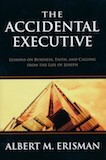One Good Reason for Atheism
Daily Reflection / Produced by The High Calling
Only fools say in their hearts, “There is no God.” They are corrupt, and their actions are evil; not one of them does good!
Psalm 14:1
In the past ten years, a number of bestselling books have promoted what people call "the new atheism." The belief that God doesn't exist isn't especially new. But the newness of "the new atheism" has more to do with certain arguments for atheism (largely based on scientism) and a new aggressiveness among atheist evangelists.
I have read several of the writings of the new atheists. For the most part, I have found their arguments to be surprisingly thin. It seems as if they really haven't dealt with philosophical arguments for the existence of God. The writings of the new atheists are often filled with outright errors, especially when they describe Christianity. (See, for example, my critique of Christopher Hitchens' book, god is Not Great. I wrote this after debating Hitchens on the radio for three hours, in June 2007.)
But I do believe there is one good argument for atheism. By "good," I don't mean that it is intellectually convincing. Rather, I mean that it makes sense psychologically. It's the argument suggested in Psalm 53:1.
This verse does not commend atheism, of course, since it refers to those who deny God's existence as "fools." It goes on to speak of the evil actions of those who deny God's existence. But this condemnation depends, of course, on a belief that the one, true God has revealed his moral will, such that actions can be judged as good or evil (or some combination). Those who deny God's existence are free to invent their own morality. They are not compelled to bow to the will of some external authority, such as God.
So, what is one good reason to be an atheist? It's wanting to determine right and wrong for myself. It's choosing to be my own moral compass, without recourse to divine guidance. By calling this reason "good," I'm not commending it, of course. But I do think it makes sense, in a way. If you acknowledge God, then you will be compelled to accept God's moral authority. If you want to run your own life, if you want to make up your own ethical standards, then atheism will seem awfully attractive.
Now, what's really silly, and all too common today, is the tendency for many of us to acknowledge God and, nevertheless, to make up our own version of right and wrong, often rejecting God's revelation. Talk about foolish!
QUESTIONS FOR FURTHER REFLECTION: Were there times when you wanted to reject God's moral guidance for your life? What happened? Are you trying right now to acknowledge God yet to live according to your own moral standards? Are there areas of your life that need to be submitted to God's sovereign, wise, loving guidance?
PRAYER: Gracious God, please help me not to be numbered among the "fools" who deny your existence. But, even more pertinent, I ask that you keep me from joining those who agree that you exist but choose to live contrary to your revelation. Help me, I pray, to live each day according to your moral directives. As I am guided by you, may I do what is good and honoring to you. Amen.






